|
Participation of civil society in non-profit making activities for public benefit has had a major impact on benevolent social development. With a strong desire to improve society, many people have given up a mainstream lifestyle and set off on a path of striving for public benefit. Since this kind of work pays less well than mainstream options, it is not an easy choice. In order to stay on this path in the long term, there is a lot to learn—from choosing one’s area of service to the conditions for starting and running a new social venture; from capacity building to overcoming challenges; and how public benefit workers could earn a living and find happiness in their endeavours. All these are interconnected and present an intellectual challenge to public benefit workers.
To explore and practice sustainable living, we need to reflect and act on our everyday life. Such reflection and practice can be promoted and popularised through the work of NGOs. In this issue, we have invited three former staff of PCD to write about their experiences of setting up new initiatives after they left PCD. Two of them have established new organisations for public benefit, and another has become the head of another organisation. What lessons do we learn from their experiences? What are the joys and sorrows, gains and losses of their endeavours? How does one continue to benefit others at the same time as benefitting oneself? Let’s listen to what they share from their hearts.
|

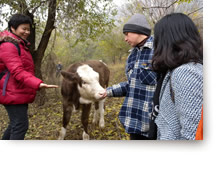 |
One of the critical issues to be addressed in community supported agriculture (CSA) is the gap between urban and rural areas. What kind of concerns are involved in the issue? Is there any deeper meaning to be reflected? One of the PCD’s Taiwan partners practicing CSA expresses her thoughts succinctly.
[More]
|

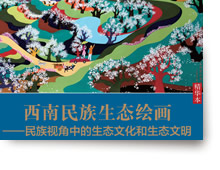 |
Southwest Nationalities’ Ecological Paintings—Ecological Culture and Ecological Civilisation in the Eyes of National Minorities in Southwest China
[More]
|

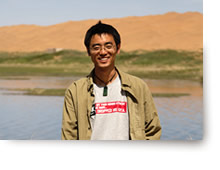 |
"In order to minimise the obstacles and pressure you will face in starting up an organisation, it is crucial to find a balance between these three aspects. That is, you must find something that you love, that you are good at, and that has social value or wins social recognition."
Ma Yanwei (Founder of Quanxin Sustainable Development Centre of Alashan in Inner Mongolia, Former Programme Officer for Ecological Agriculture, PCD), talks about how to choose the type of NGO initiatives to engage in.
|
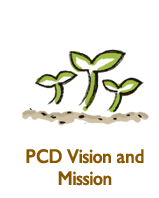  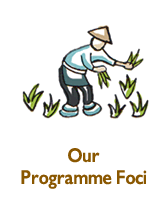 
 |

Though we are based in different regions and have different work approaches, we are all striving to practise sustainable living, and the ripples we create will definitely benefit other partners. Please share your experience and reflections with us and send your stories to enews@pcd.org.hk. The subject of your stories should be related to your programmes. Please provide your name, project background and photographs. Please do not exceed 2,000 words.
|
 |

 Established in Hong Kong in May 2001, Partnerships for Community Development (PCD) is a community development organisation without any religious or political affiliation. It is set up and funded by the Kadoorie Foundation (via a stream of funds allocated by the Hon. Mrs McAulay). The Foundation is a Hong Kong-based trust founded in 1970 by the late Sir Horace Kadoorie who believed in the motto: "Help people to help themselves" Established in Hong Kong in May 2001, Partnerships for Community Development (PCD) is a community development organisation without any religious or political affiliation. It is set up and funded by the Kadoorie Foundation (via a stream of funds allocated by the Hon. Mrs McAulay). The Foundation is a Hong Kong-based trust founded in 1970 by the late Sir Horace Kadoorie who believed in the motto: "Help people to help themselves"
PCD believes that everyone, however deprived in material terms, has the right and the ability to lead a dignified and sustainable life in harmony with others, with nature and with the world at large. Individual well-being and sustainable living are crucial to maintain a harmonious and sustainable community. PCD believes that the whole community must reflect together on its relationship with nature and on its cultural traditions.
Main areas of work include: Protection of environment, ecological agriculture, holistic health, preservation and innovation of local cultures, cultural reflection on the non-sustainable development model, learning about sustainable living and putting it into practice.
|
 |

Hong Kong Head Office:
13/F Chi Wo Commercial Building, 20 Saigon Street, Jordan, Kowloon, Hong Kong
Tel: (852) 2458-0011 Fax: (852) 2430-7099
Email: info@pcd.org.hk Website: www.pcd.org.hk
|
|
















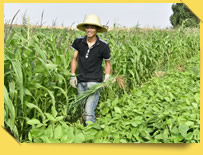


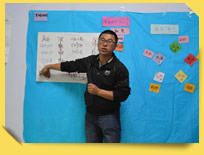
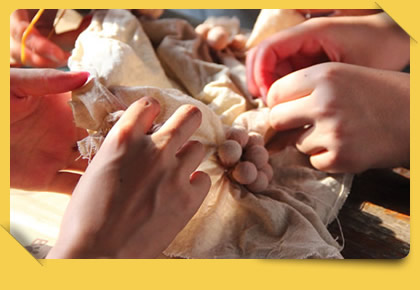

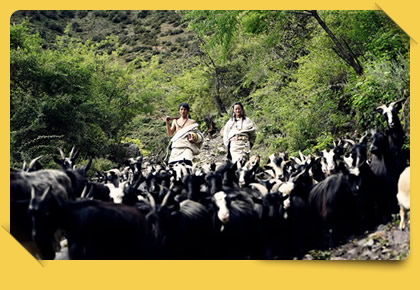

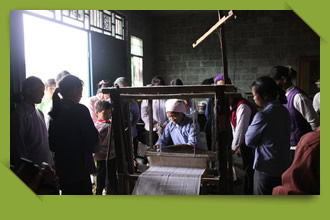







 Established in Hong Kong in May 2001, Partnerships for Community Development (PCD) is a community development organisation without any religious or political affiliation. It is set up and funded by the Kadoorie Foundation (via a stream of funds allocated by the Hon. Mrs McAulay). The Foundation is a Hong Kong-based trust founded in 1970 by the late Sir Horace Kadoorie who believed in the motto: "Help people to help themselves"
Established in Hong Kong in May 2001, Partnerships for Community Development (PCD) is a community development organisation without any religious or political affiliation. It is set up and funded by the Kadoorie Foundation (via a stream of funds allocated by the Hon. Mrs McAulay). The Foundation is a Hong Kong-based trust founded in 1970 by the late Sir Horace Kadoorie who believed in the motto: "Help people to help themselves"